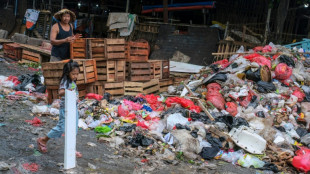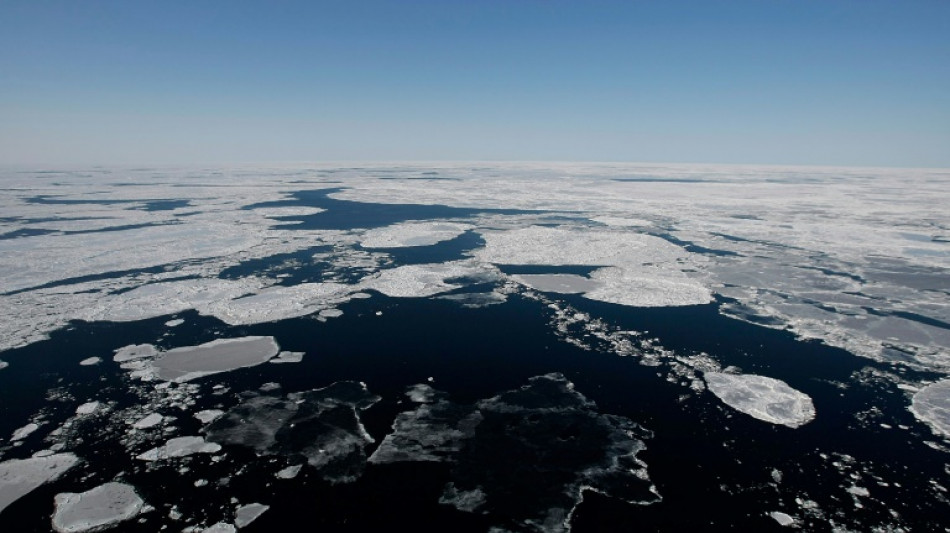
-
 MSF will keep operating in Gaza 'as long as we can': mission head
MSF will keep operating in Gaza 'as long as we can': mission head
-
Russian Filippov wins first medal at Milan-Cortina Games for individual neutral athletes

-
 Italian Milan takes sprint honours at UAE Tour
Italian Milan takes sprint honours at UAE Tour
-
Dozens killed in jihadist attacks in northwest Nigeria

-
 Zimbabwe unbeaten in T20 World Cup after six-wicket Sri Lanka win
Zimbabwe unbeaten in T20 World Cup after six-wicket Sri Lanka win
-
Postecoglou admits taking Nottingham Forest post a 'bad decision'

-
 Switzerland's Fatton wins women's ski mountaineering sprint on Olympic debut
Switzerland's Fatton wins women's ski mountaineering sprint on Olympic debut
-
Kinghorn, Van der Merwe return for Scotland against Six Nations strugglers Wales

-
 Repsol says could boost Venezuela oil output over 50% in 12 months
Repsol says could boost Venezuela oil output over 50% in 12 months
-
UN says Israeli actions raise 'ethnic cleansing' fears in West Bank, Gaza

-
 Arteta tells faltering leaders Arsenal to harness Wolves 'pain' against Spurs
Arteta tells faltering leaders Arsenal to harness Wolves 'pain' against Spurs
-
Crowley gets nod for Irish as Prendergast drops out

-
 Unbeaten Swiss to meet Great Britain in Olympic men's curling semis
Unbeaten Swiss to meet Great Britain in Olympic men's curling semis
-
UK police arrest ex-prince Andrew on suspicion of misconduct

-
 Oil extends gains on US-Iran tensions, Europe stocks slide
Oil extends gains on US-Iran tensions, Europe stocks slide
-
Former prince Andrew, a historic downfall

-
 Sri Lanka post 178-7 against Zimbabwe ahead of T20 Super Eights
Sri Lanka post 178-7 against Zimbabwe ahead of T20 Super Eights
-
OpenAI's Altman tells leaders regulation 'urgently' needed

-
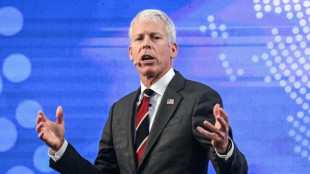 US renews threat to leave IEA
US renews threat to leave IEA
-
Liverpool boss Slot says Isak in 'final stages of rehab'
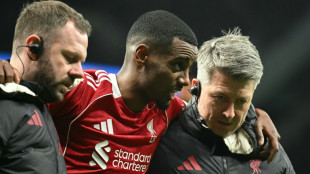
-
 Airbus ready to build two new European fighter jets if 'customers' ask
Airbus ready to build two new European fighter jets if 'customers' ask
-
UN Sudan probe finds 'hallmarks of genocide' in El-Fasher
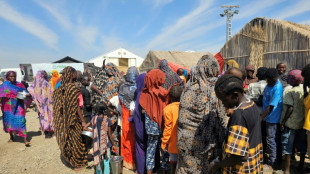
-
 Costelow starts, Hamer-Webb makes Wales debut in Six Nations clash with Scotland
Costelow starts, Hamer-Webb makes Wales debut in Six Nations clash with Scotland
-
Facing US warnings, Iran defends right to nuclear enrichment

-
 Ex-South Korea leader Yoon gets life in prison for insurrection
Ex-South Korea leader Yoon gets life in prison for insurrection
-
OpenAI's Altman says at India summit regulation 'urgently' needed

-
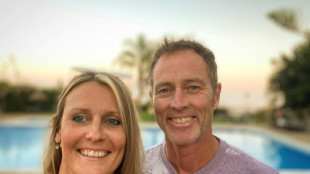 British couple held in Iran sentenced to 10 years
British couple held in Iran sentenced to 10 years
-
West Indies ease past Italy to tune up for T20 Super Eights

-
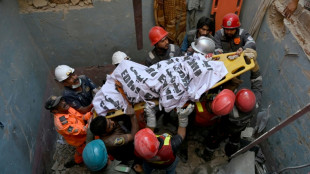 At least 16 killed after building collapses in Pakistan following blast
At least 16 killed after building collapses in Pakistan following blast
-
Summit photo op fails to unite AI startup rivals

-
 OpenAI's Altman says world 'urgently' needs AI regulation
OpenAI's Altman says world 'urgently' needs AI regulation
-
Horror comics boom in our age of anxiety

-
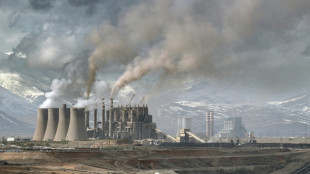 Turkey fires up coal pollution even as it hosts COP31
Turkey fires up coal pollution even as it hosts COP31
-
London fashion week opens with tribute to one of its greats

-
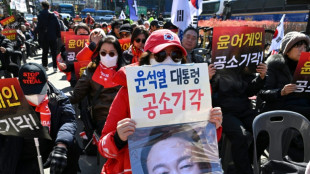 Ex-S.Korea leader Yoon gets life in prison for insurrection
Ex-S.Korea leader Yoon gets life in prison for insurrection
-
Pea soup, veggie mash contest warms up Dutch winter

-
 South Korea's Yoon: from rising star to jailed ex-president
South Korea's Yoon: from rising star to jailed ex-president
-
Private companies seek to import fuel amid Cuban energy crisis

-
 India search for 'perfect game' as South Africa loom in Super Eights
India search for 'perfect game' as South Africa loom in Super Eights
-
India's Modi calls for inclusive tech at AI summit

-
 Airbus planning record commercial aircraft deliveries in 2026
Airbus planning record commercial aircraft deliveries in 2026
-
Elections under fire: Colombia endures deadliest campaign in decades
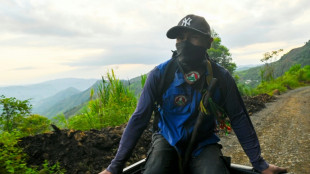
-
 Traore backs 'hungry' Italy against France in Six Nations
Traore backs 'hungry' Italy against France in Six Nations
-
All-rounder Curran brings stuttering England to life at the death

-
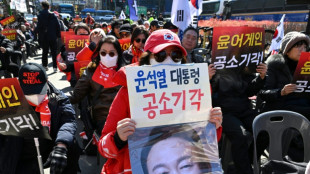 South Korea court weighs death sentence for ex-president Yoon
South Korea court weighs death sentence for ex-president Yoon
-
Tech chiefs address India AI summit as Gates cancels

-
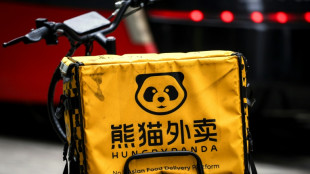 Australia rejects foreign threats after claim of China interference
Australia rejects foreign threats after claim of China interference
-
Somali militias terrorise locals after driving out Al-Qaeda
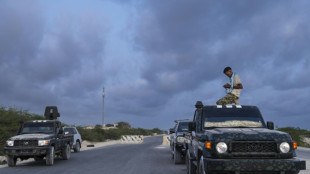
-
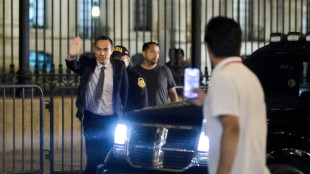 Peru picks Balcazar as interim president, eighth leader in a decade
Peru picks Balcazar as interim president, eighth leader in a decade
-
Australian defence firm helps Ukraine zap Russian drones


Lessons on climate grief from the people of the sea ice
Marilyn Baikie's remote Inuit community has more wisdom than they could ever want about ecological grief.
These "people of the sea ice" have endured years of dramatic warming that is ravaging their beloved landscape at the edge of the Arctic, forcing them to reimagine a way of life that goes back centuries.
"It affects how you live your life, it affects the things you do with your children, it really is affecting people's mental health," said Baikie, a community health worker in Rigolet, a coastal village of 300 people in Canada's Labrador region.
Before this region became one of the fastest-warming places on the planet, people could travel across frozen waters until spring, to fish or go deep into countryside that is a profound part of their identity.
Now they often worry the ice won't hold.
So when in winter the thermometer goes to up to zero -- or higher -- Baikie knows people will need extra support.
She and colleagues organise activities to ease stress and fill the "empty time" for people stranded by the warmth, like craft workshops and knowledge sharing between elders and young people.
Other local projects include mapping safe routes over the ice and taking an active part in climate monitoring.
Still, people feel isolated, Baikie told AFP in a recent video call.
"When you talk about it, it really tugs at your heart."
- Solastalgia -
But it was talking about it that made the Inuit elders -- including Baikie's mother -- among the first to sound the alarm about the wrenching grief wrought by climate change.
Opening up to researchers more than a decade ago, they described the land like a family member.
"People would say it's just as much a part of your life as breathing," said Ashlee Cunsolo, who was studying climate impacts on water quality before pivoting to wellbeing as a result of the strong testimonies.
A decade later, these experiences and coping strategies are part of a growing understanding of the mental health toll of environmental destruction.
"It's not just something anymore that people say: 'that's in the future, or that'll be in 20 years, or that's only in the north'," she said.
"It's really everywhere."
Cunsolo is one of the authors of a major UN report on climate impacts due to be released on Monday.
It is expected to underscore the severe global health implications -- physical and mental -- of warming and the need to adapt to the challenges ahead.
But unlike the spread of disease by growing numbers of ticks or mosquitoes, Cunsolo said the effects on people's minds are myriad and overlapping.
In Labrador, "it's slow, it's cumulative. It's about identity", she said.
Cunsolo calls this ecological grief, one of a range of new terms for environmental emotions that also includes solastalgia -- "the homesickness that you have when you're still at home".
Overall impacts range from strong feelings -- sadness, fear, anger -- to anxiety, distress and depression, while people caught in an extreme event might suffer post-traumatic stress disorder.
Canada alone has seen a catalogue of disasters in recent years, including floods, wildfires and what used to be a once-in-a-thousand-year heatwave.
"How do we support more and more people who are coping with this type of trauma? They're not isolated events anymore," said Cunsolo.
- Climate anxiety -
There is growing concern about climate anxiety in children and young people worldwide.
One survey of 10,000 16 to 25-year-olds in 10 countries, published in the journal The Lancet Planetary Health in December, found almost 60 percent were very worried about climate change.
In the Philippines that rose to 84 percent.
Manila-based researcher and psychologist John Jamir Benzon Aruta, who was not involved in the survey, said concerns are highest among young people with access to the internet and social media.
"They worry about how much stronger the typhoons will become, whether it's a safe place for them and their future children," said Aruta.
His research includes support for environmental defenders, in a country with one of the world's highest rates of murders of these campaigners.
Climate anxiety can be seen as a "normal response to the actual threat", he said, calling for therapies and responses that counteract feelings of helplessness.
People around the world are faced with a barrage of negative news and a popular culture saturated with dystopian visions of the future.
What they need, experts say, is hope.
- Earth emotions -
"There is a need to maintain a sense of meaningfulness in life and that's really the core of my interpretation and emphasis of hope," said Finnish researcher Panu Pihkala, an ordained minister in the Evangelical Lutheran Church.
Pihkala, who stopped presiding over weddings and funerals in 2010, says his religious background has helped him contemplate these "deep existential issues" and host ecological grief workshops in Finland.
Even the creator of the term solastalgia, Glenn Albrecht, is looking to shift the focus away from the grief-laden term he created in 2003 as a response to the environmental destruction of coal mining in Australia.
His ever-expanding lexicon of "earth emotions" and concepts includes the hope that humanity will soon commence the "symbiocene" -- living in harmony with the planet rather than destroying it.
"We needed to reinvent the way we talk about our present and our future," he said in a recent online lecture.
In Labrador, Baikie said recognition of the emotional impact of climate change had not just given people an outlet for their feelings, but enabled research they hope will help others around the world.
She wants people and governments to shake off the idea that climate catastrophe is "inevitable".
"Every little bit counts and (if people) really devote money and attention to it, I think we could start seeing some changes," she said.
"The time has come to stop talking about it and to actually do something."
M.A.Colin--AMWN



